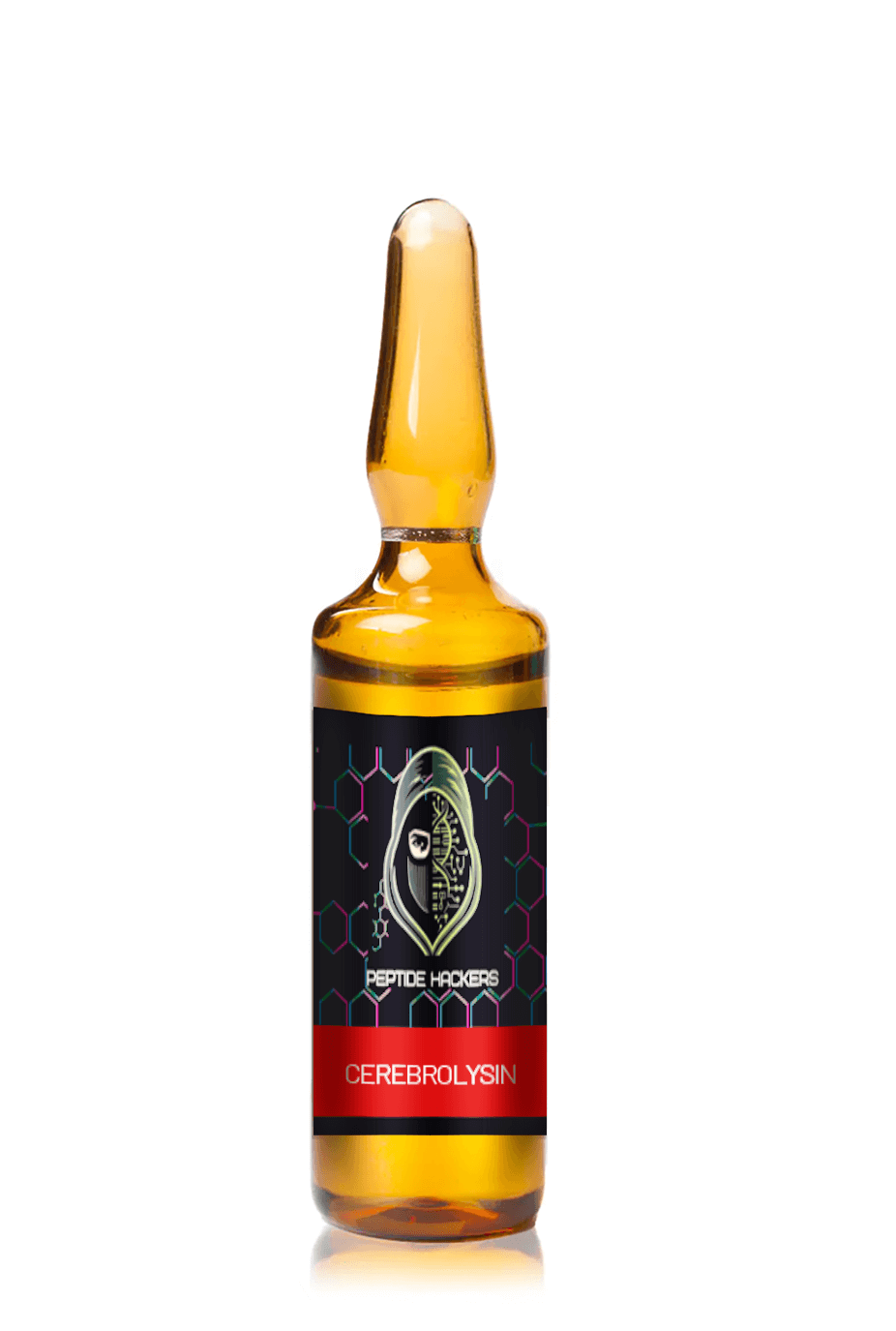What is Cerebrolysin: A Powerful Agent in Neuroprotection and Brain Health

Cerebrolysin: Brain Booster or Risky Gamble?
Cerebrolysin is a mix of peptides and amino acids extracted from pig brains, and some people believe it could be a powerful brain booster. While it’s not a miracle cure, supporters say it can improve cognitive function, protect brain cells, and maybe even slow down neurodegenerative diseases. But before you dive in, know that Cerebrolysin is still an experimental treatment with a lot of unknowns.
How Cerebrolysin is Used: Injecting the Brain Juice
Cerebrolysin isn’t something you can just pop like a pill; it has to be injected. This method delivers the compounds directly into your system, bypassing the digestive tract. While that might seem like a good idea, it also comes with risks. Injecting Cerebrolysin isn’t as simple as it sounds—it requires precision and care.
Mixing Cerebrolysin with Other Peptides
Cerebrolysin isn’t the only option out there for boosting brain function. Some people combine it with other peptides that mimic natural brain growth factors. These peptide blends are supposed to work alongside Cerebrolysin, potentially making it more effective. However, this approach is still being studied, so results can vary.
Adding IGF-1 Proteins: A Brain-Boosting Combo?
IGF-1 is a protein that supports brain cell growth and protection. Sometimes it’s used with Cerebrolysin to try to enhance its effects, potentially offering even more neuroprotection and recovery after brain injuries. But, just like Cerebrolysin, the effects of IGF-1 are not fully understood, and the combination might not work for everyone.
Cerebrolysin as a Brain Regulator
Cerebrolysin is sometimes called a “bioregulator,” which means it helps keep brain activity stable, especially after things like strokes or brain injuries. By regulating the brain’s environment, Cerebrolysin may help reduce damage and support recovery. But while this sounds promising, the effects aren’t guaranteed and can vary from person to person.
Who Might Use Cerebrolysin?
-
Dementia and Alzheimer’s Disease: Some research suggests that Cerebrolysin might help slow down memory loss in conditions like Alzheimer’s. It could help with everyday tasks like remembering where you left your keys. But it’s important to remember that this isn’t a cure, and the benefits might be limited.
-
Parkinson’s Disease: Cerebrolysin won’t replace your current medication, but it might help protect the brain cells that produce dopamine, potentially extending the benefits of other treatments.
-
Stroke Recovery: If given after a stroke, Cerebrolysin might help with recovery, improving cognitive and motor skills. But, like everything else, the results aren’t guaranteed.
-
Traumatic Brain Injury (TBI): There’s hope that Cerebrolysin could help repair brain damage after a TBI, but how well it works likely depends on how severe the injury was.
-
Chronic Pain Management: Some people think Cerebrolysin could help with chronic pain, especially nerve pain. But this idea is still being researched, and more studies are needed to see if it’s really effective.
How Much Cerebrolysin is Enough?
The amount of Cerebrolysin you need can vary depending on what you’re using it for. Typically, doses range from 50 to 210 ml over several weeks. Since it’s injected, it’s important to work with a healthcare provider to get the dosage right and avoid unnecessary risks.
Staying Safe: Purity Matters
If you’re thinking about trying Cerebrolysin, it’s crucial to make sure the product is as pure as possible—ideally 99% pure. Anything less could increase the risk of side effects. Also, keep in mind that Cerebrolysin isn’t approved in many countries, so you need to be extra careful and well-informed before trying it.
Final Thoughts: Weighing the Risks and Rewards
Cerebrolysin is an intriguing but risky option for anyone looking to boost brain function or recover from brain injuries. While it might offer benefits, it also comes with significant risks, and there are no guarantees. If you’re considering this treatment, it’s essential to weigh the potential rewards against the risks and to consult with a healthcare professional before starting anything new.
- Tags: Cerebrolysin


